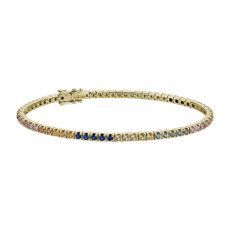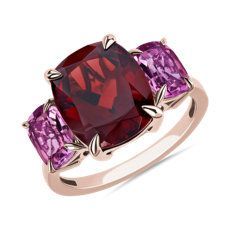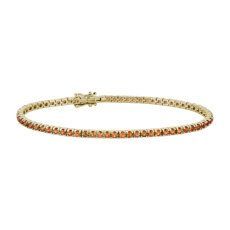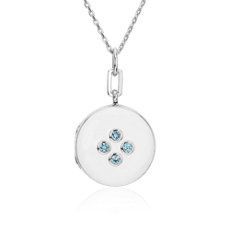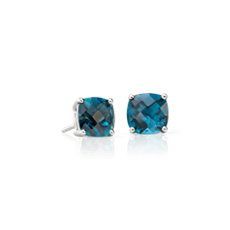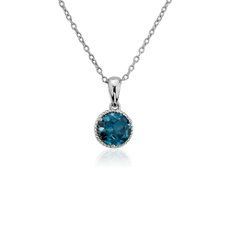Our Customer Service Center is currently closed for Christmas and will reopen at 12am EST on Friday, December 26th. Merry Christmas!
What are Enhancements?
There are many methods used to enhance a gemstone’s color, clarity and durability and maximize its beauty. Different gemstones are enhanced differently, depending on the type of gem and the end goal.

An Intro to Gemstone Treatments and Enhancements
Heat Treatment
Infusion
Coating
Bleaching
Bleaching is commonly used to lighten the appearance of a gemstone. Chemicals like bleach and hydrogen peroxide are the most common lightening agents for gemstones. Bleaching also removes unwanted color in order to even out the appearance of the stone. This is a relatively stable enhancement method for gems that won’t be re-cut or polished following the treatment, but bleaching may have a negative impact on the gem’s durability. For this reason, the bleaching method is often combined with an impregnation treatment to improve strength and durability.Dyeing
Dyeing involves adding a coloring agent into a gemstone to give it a new color, intensify its existing color or to improve the overall color uniformity. Since color is the most important attribute of a gemstone, dyeing is one of the oldest enhancement methods in the industry.
Some believe that dyeing a gemstone decreases its value and renders it artificial, but this treatment only enhances its natural pigmentation—a dyed stone looks nearly identical to an undyed, much more expensive jewel.
Irradiation
New and Future Enhancement Technologies
emstone enhancement techniques have been around for centuries and continue to be developed every year in order to provide consumers with the most beautiful gemstone jewelry available at an affordable price. We are committed to working with the best industry professionals and gemologists to maintain our high-quality standards when it comes to gemstone enhancement.What to Look For When Buying an Enhanced Gemstone
Vivid Color
The gemstone may have been treated with heat or irradiation.
Even Color
The gemstone may have undergone dying or bleaching.
Eye-Clean Appearance
If the gemstone appears perfectly clear, it may have undergone an infusion.
Our Colored Gemstone Enhancement Approach
We are proud to offer the highest quality, hand-selected gemstones on the market. In order to meet our high professional standards, our colored gemstones are thoroughly inspected by our expert gemologists to ensure all gemstone enhancements have been made with precision and care.
Common Enhancements by Gemstone
Agate
Heated or dyed to improve color.
Amber
Heated to improve color and clarity.
Amethyst
Heated to improve color.
Apatite
Heat.
Aquamarine
Heated to improve color and clarity.
Black Diamond
Heated or irradiated to alter color.
Black Onyx
Dyed.
Black Spinel
None.
Blue Topaz
Heated and/or irradiated to alter color. Thermal coated to alter color.
Carnelian
Heated to improve color.
Chalcedony
Dyed.
Chrome Diopside
None.
Citrine
Heated to improve color.
Coral
Coated or impregnated with color less substances to improve surface uniformity or durability. Bleached or dyed to enhance color.
Diamond
None.
Emerald
Infused to improve clarity and/or color.
Fire Opal
None.
Garnet
None.
Iolite
None.
Kunzite
Heated or irradiated to improve color.
Labradorite
None.
Lapis
Dyed.
Moonstone
None.
Morganite
Heated to improve color and clarity.
Opal
Coated to alter surface consistency and durability.
Pearl (natural and cultured)
Bleached, dyed, polished and coated.
Peridot
None.
Prehnite
None
Quartz
Green/Lemon: Irradiated to improve color.
Smokey: Heated to improve color.
Blue: Dyed.
Rutilated/Rose/white: None.
Ruby
Heated and/or infused to improve color and clarity.
Sapphire
Heated and/or infused to improve color and clarity.
Spinel
None.
Tanzanite
Heated to alter color and clarity. Infused to alter color and clarity.
Tourmaline
Irradiated to improve color.
Turquoise
Coated or impregnated with colorless substances to improve surface uniformity or durability.
White Agate
None.
White Topaz
None.

